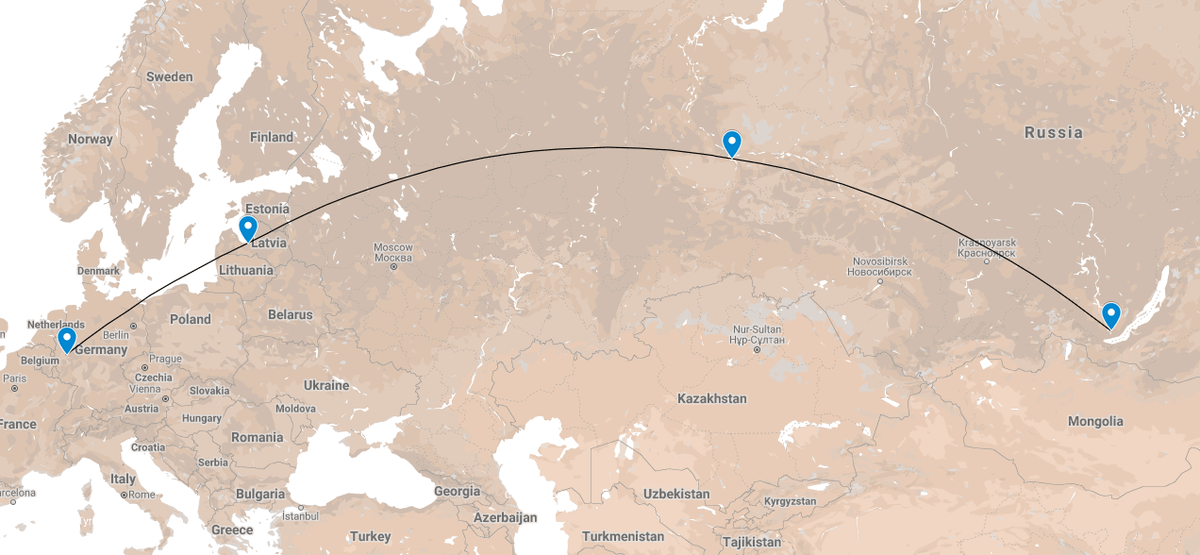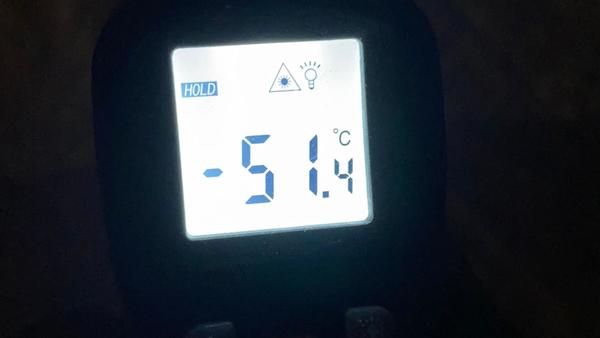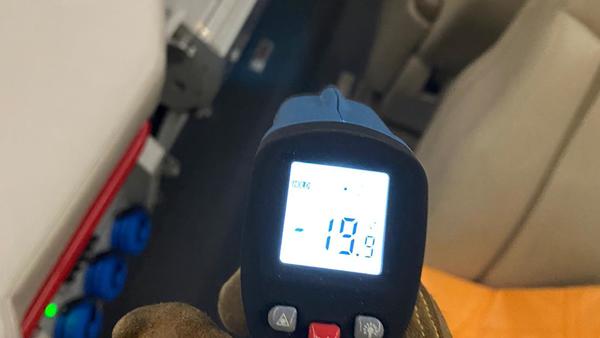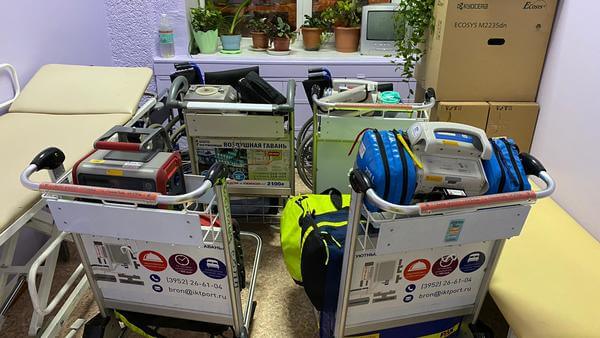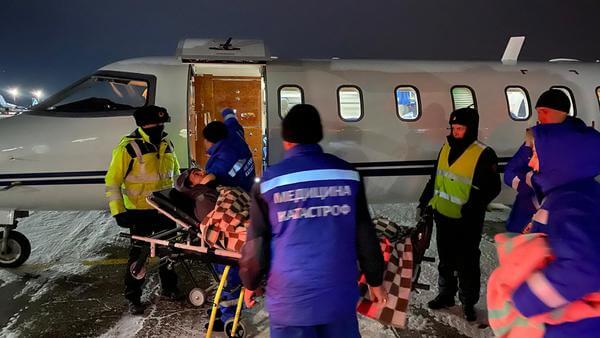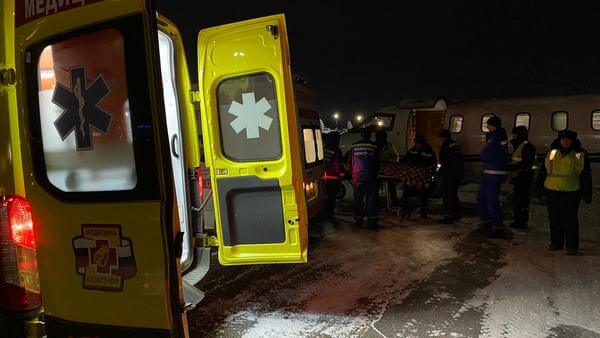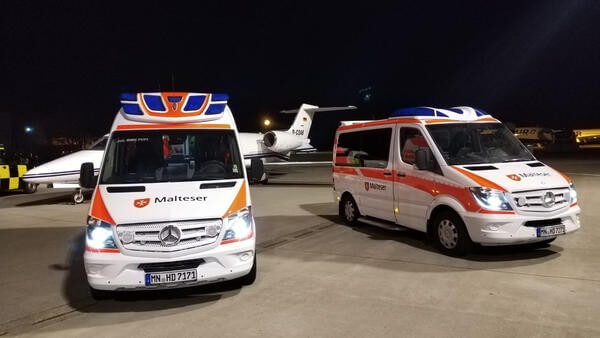Case Study: Quick Air and Malteser's sub-zero temperature repatriation

Malteser and Quick Air repatriated two Germans from a winter sports holiday in Irkutsk, Russia, where a car accident had resulted in polytraumatic injuries. The team was faced with some unique challenges in co-ordinating the flight in sub-zero temperatures
Just after Christmas 2019, a party of skiers from southern Germany headed for the Baikal-Sea region in southeastern Russia for a vacation of backcountry touring and snowshoe hiking. During transportation from the airport to the final destination, the group´s van was hit front-on by a truck. All the passengers not wearing seatbelts were hurt – three of them with minor injuries only, but one was fatally injured while two more survived with polytraumatic injuries.
Treatment
Of the two seriously injured passengers, one was transported directly to Irkutsk Regional Hospital with multiple but stable fractures of the spine, rib fractures on both sides with left pneumothorax and a fracture of the lower leg. The second victim had a severe open head trauma with several craniofacial and skull fractures, a brain haemorrhage and a subdural haematoma. Furthermore, he had rib fractures with pneumothorax, a hip luxation with femur fracture and a visual disorder due to an orbital fracture. The patient was first stabilised in Schelechow, a local hospital, with trepanation and hip repositioning taking place prior to his transport to Irkutsk.
By that time, Malteser assistance had been informed about these two patients by different insurance companies, and started clarification of their conditions right away. They quickly faced multiple problems:
The hospital only agreed to share patient information following intervention from the consulate.
No one, neither medical nor administrative personnel, spoke English.
The orthodox Christmas festivities made it very difficult to communicate with the hospitals for at least 10 days.
All these problems, however, were overcome as a result of close contact with the consulate and use of interpreters.
Fortunately, the patients were treated successfully with complex brain and eye surgery in the one case, reduction of all fractures and thoraxic drainages in both cases. The condition of both patients was surprisingly good, but transportation via commercial flight was not a viable option due to the pneumothoraces and assumed trapped air in the skull. Air ambulance transportation was required.

Logistics
At this point, Quick Air, as the mutual EURAMI certified airline partner of Malteser, became involved in the case.
The first step was selection of aircraft type. In this case, it was possible to transport both patients in one aircraft in a double stretcher configuration, as it would result in a cost reduction for the insurer with no adverse impact on patient care. The medical conditions of both patients meant, however, that any aircraft chosen should have the appropriate space for any possible treatment that would turn out to be necessary on board. One of Quick Air’s new Learjet 45s (callsign D-CQAB) was selected for the job. Irkutsk Airport’s opening hours, available runways, fuel availability and weather were then all checked, and it was discovered that the actual temperature was -38°C during the day. Such temperatures meant that cold weather operations were initiated, with further considerations to aircraft and crew necessary.
A request was made to the Irkutsk Airport Authority to see if a heated hangar space would be available for the necessary overnight stay of the aircraft. However, this was denied. Thus, the mission had to be prepared for cold weather operations, including the briefing of the flight and medical crew. Given the forecast temperature, the Learjet 45 seemed again to be the best option as it is equipped with an APU (auxiliary engine) and is capable of continuous heating of the whole aircraft cabin.
Preparation of the aircraft was performed by Quick Air’s own maintenance team. In accordance with the manufacturer’s cold weather operations manual, the freshwater system, as well as the toilet system, had to be drained and vented prior to the mission in order to avoid damage that could be sustained due to freezing.
The flight crew was briefed concerning the mandatory preheating of the cabin, engines and hydraulic system prior to take-off. The medical crew was briefed to clear all medical devices, fluids, infusions and medication from the aircraft for the overnight stay to prevent freezing and damage to the equipment. For example, the Hamilton T1 ventilator and ZOLL X series monitoring are limited to a storage temperature of -20°C and -30°C and operating temperature of -15°C and 0°C respectively.
The flight to the Irkutsk airport and back to Germany was conducted with two technical landings for refuelling in Riga, Latvia and Khanty-Mansiysk, Russia, with a normal cruising altitude of 45,000 ft. The Learjet 45 flew above the normal airlines and got plenty of directs on its way as an active air ambulance, which made the journey even faster than planned. When it arrived in Irkutsk, the crew detected an outside temperature of -51°C and rapid cooling down of the cabin without heating (Fig.2 and 3). The crew proceeded as per their briefing, and medical devices and fluids were stored in the airport clinic. (Fig.4)
Repatriation
Seventeen days after the accident, the Malteser medical crew, consisting of an experienced intensive care specialist and paramedic, arrived on the scene. They found two ABCD-stable patients, ambulating and without any drainages and good saturation in room air. There were no hints of trapped air in any imaging found. Thus, the possibility of high-level flight, with the option of a change to sea level in case of any problems, was communicated to the Quick Air flight crew.
During the bedside visit, one of the patients mentioned that he wanted to take his avalanche backpack back home instead of leaving it in Irkutsk. After a short phone call with the operations team, the Quick Air dangerous goods safety adviser permitted the carriage onboard, referring to the IATA dangerous goods regulations.
The flight home was carried out without incident and on arrival in Germany, two Malteser ground ambulances were waiting ready and prepared for the patients and medical crew.
Both patients were perfectly stable on transport with handover to high-level facility for re-evaluation and further treatment. ■
